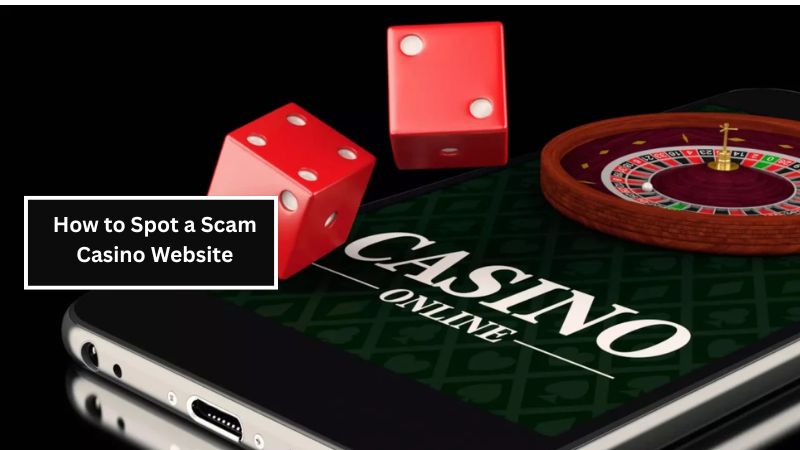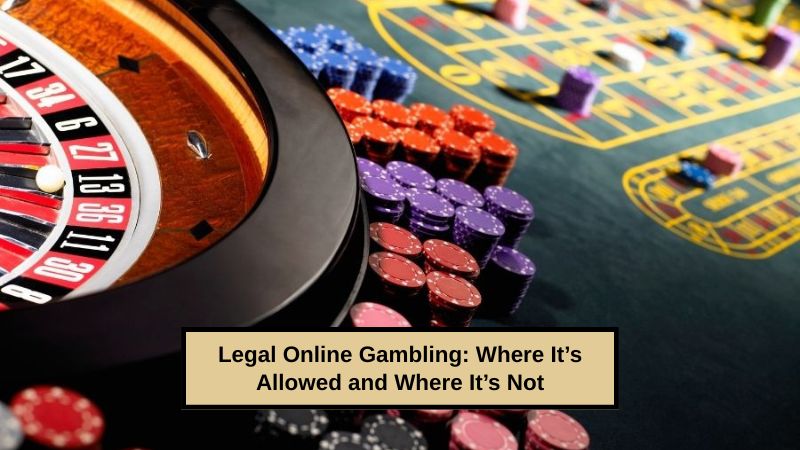The world of online gambling has exploded in recent years, offering convenience, entertainment, and the chance to win real money from the comfort of your home. However, this rapid growth has also paved the way for scam casino websites looking to exploit unsuspecting players. While there are many legitimate online casinos operating under strict regulatory standards, scam sites lurk in the shadows, using deceptive tactics to steal money, personal data, and player trust.
Whether you’re a seasoned player or just getting started, learning how to identify a scam casino site is crucial. In this comprehensive guide, we’ll walk you through the key warning signs to look out for, common scams to be aware of, and tips to stay safe while enjoying your online gaming experience.
What is a Scam Casino Website?
A scam casino website is a fraudulent platform that operates under false pretenses to deceive users. These sites may offer fake games, withhold winnings, rig odds, or even disappear with players’ deposits. Unlike licensed and regulated platforms, scam casinos operate without any accountability, putting players at serious risk.
These websites often look legitimate on the surface, which makes them especially dangerous. Professional web design, flashy promotions, and even fake licensing seals are commonly used to build false trust. That’s why it’s important to look beyond the surface.
Red Flags: How to Identify a Scam Casino Website
Recognizing the warning signs is the first step toward protecting yourself. Here are some of the most common red flags that may indicate a casino site is not trustworthy.
1. Lack of a Valid License
One of the first things to check on any online casino site is its licensing information. Legitimate casinos operate under the authority of recognized regulatory bodies such as:
- The UK Gambling Commission (UKGC)
- Malta Gaming Authority (MGA)
- Gibraltar Regulatory Authority
- Curacao eGaming (though not always as strict)
Scam casinos often either have no license at all or display fake credentials. Always scroll to the footer of the website to see if licensing information is listed. Even then, go the extra mile and verify the license directly with the regulatory body’s website.
2. Poor Website Design and Functionality
Although some scam casinos invest in convincing web design, many still look outdated or poorly structured. Watch out for:
- Broken links
- Poor grammar and spelling
- Missing contact information
- Clunky navigation
These are all signs that the site may not be professionally managed or secure.
3. Unrealistic Bonuses and Promotions
If a deal sounds too good to be true, it probably is. Scam casinos often lure players in with exaggerated welcome bonuses like “$5,000 Free on Signup” or “No Deposit Required with Guaranteed Winnings.” These offers usually come with hidden terms or are designed to never pay out.
Always read the terms and conditions attached to any bonus. Look for high wagering requirements, game restrictions, or withdrawal limits that could indicate foul play.
4. No Clear Terms and Conditions
Legitimate casinos have comprehensive terms and conditions that are easy to access. If a site hides its terms or doesn’t have them at all, that’s a huge red flag. Scam sites often try to avoid responsibility by leaving their rules vague or nonexistent.
If you can’t find clear policies on withdrawals, bonuses, or dispute resolution, steer clear.
5. Delayed or Denied Withdrawals
One of the most common scams is refusing to pay out winnings. If users report long delays, denied withdrawals, or unreasonable requests for verification documents, it’s a serious warning sign. A reputable casino will have a straightforward and transparent withdrawal process.
Check online reviews and forums for user complaints regarding payments. If many users report similar issues, it’s likely a scam.
6. Lack of Responsible Gambling Tools
Top-tier casinos provide responsible gambling tools such as deposit limits, self-exclusion, and reality checks. Scam casinos, on the other hand, often skip these features entirely because they are not concerned with player well-being.
The absence of these tools might not immediately suggest fraud, but it’s an indicator that the site is not operating with integrity.
7. No Third-Party Auditing
Legitimate casinos have their games and software audited by independent companies like eCOGRA or iTech Labs to ensure fair play and randomness. If there’s no mention of third-party auditing, or if the auditing claims cannot be verified, it could be a scam.
8. Fake Customer Reviews and Testimonials
Scam websites often post fake testimonials on their pages. These reviews tend to be overly positive and generic. In contrast, when you check independent review platforms or forums like Reddit or Trustpilot, you may find very different opinions.
Rely on third-party reviews and user experiences rather than testimonials posted directly on the casino’s website.
Common Types of Casino Scams
Scam sites use various tricks to trap users. Being familiar with common tactics can help you avoid them.
Identity Theft
Fraudulent sites may ask for excessive personal or financial information and use it for identity theft. They might even sell your data to third parties without your consent.
Rigged Games
Some casinos use non-certified or fake software that’s intentionally rigged against the player. These games are designed so you can never win, even if it seems like you’re close.
Deposit Traps
Scam casinos might accept deposits easily but create hurdles or excuses when it’s time to withdraw. Some may even delete your account after a big win.
Phishing Scams
Some scam sites are simply phishing schemes in disguise. They collect login credentials, banking information, or credit card numbers to be used elsewhere fraudulently.
Tips to Stay Safe While Gambling Online
Stick to Licensed and Reputable Casinos
Always choose casinos that are licensed by top-tier regulators. Look for user reviews and ratings from trusted platforms before signing up.
Research Before Depositing
Spend time researching the site. Google the casino’s name along with terms like “scam,” “fraud,” or “review.” This often reveals valuable insight into the reputation of the platform.
Use Secure Payment Methods
Avoid casinos that ask for unconventional or insecure payment methods. Stick with secure and traceable payment providers like:
- Visa or MasterCard
- PayPal
- Skrill or Neteller
- Crypto only when used on trusted, licensed sites
Read the Terms and Conditions Thoroughly
Understand what you’re agreeing to. This includes bonus policies, wagering requirements, and withdrawal limits. Transparency is a key marker of a trustworthy site.
Use Strong Passwords and 2FA
Secure your account with a strong, unique password and enable two-factor authentication if available. This helps protect your account from hacking.
Limit Personal Information
Only provide essential details and avoid sharing excessive personal or financial data unless you’re sure the site is legitimate and secure.
What to Do If You Fall Victim to a Scam Casino
Unfortunately, many people only realize they’ve been scammed after it’s too late. If this happens to you, here’s what you should do:
- Contact your bank or payment provider immediately to try and reverse any unauthorized transactions.
- Report the scam to relevant authorities such as your local consumer protection agency or a gambling commission.
- Leave reviews on trusted platforms to warn others.
- Avoid re-engaging with the scam site. Scammers may attempt to lure you back in with false promises of winning or recovering your money.
Final Thoughts
Online casinos can offer great entertainment, but only if you choose a platform that operates with transparency, fairness, and accountability. Scam casino websites pose a serious risk to your money, personal information, and online safety. By being cautious and well-informed, you can avoid these traps and enjoy a secure and enjoyable online gambling experience.
Always trust your instincts—if something feels off, it probably is. When in doubt, consult community forums, licensing bodies, or stick to well-known and vetted platforms. A little bit of research can go a long way in keeping your gambling experience safe and fun.





